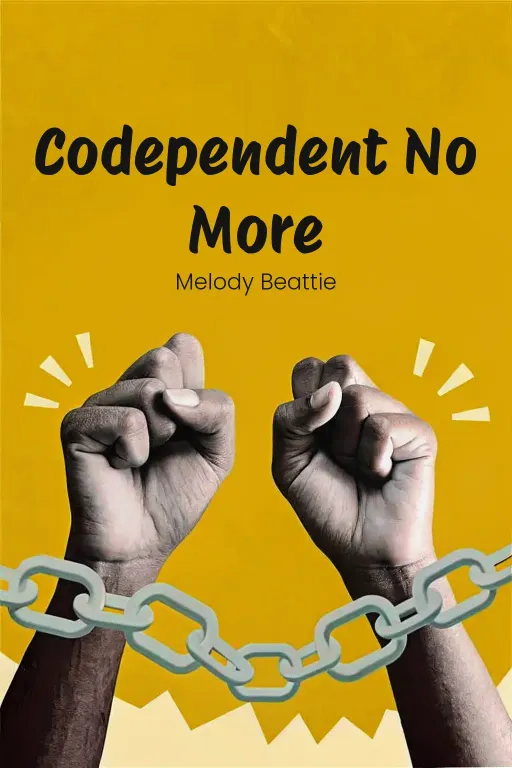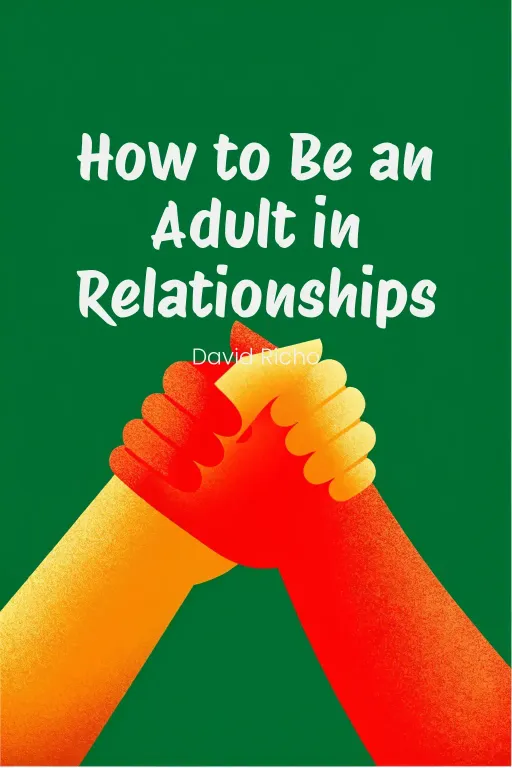
Marry Better: Spark Deeper Connection Now!
Podcast by The Mindful Minute with Autumn and Rachel
Uncovering the Secrets of Sexual Intimacy in Marriage
Introduction
Part 1
Autumn: Hey everyone, welcome back! Let’s dive straight in with a question: How often do we “really” think about the link between intimacy and communication in our marriages? I'm not just talking about the physical stuff, but those deeper emotional layers that give it meaning. Rachel: Exactly. Because, let’s be real, for a lot of couples, sex can feel more like something you just tick off the list. Or, you know, maybe just a source of stress, instead of a real, genuine connection. And the question is where do you even begin when life just gets totally in the way? Autumn: Well, that’s where Dr. Kevin Leman’s “Sheet Music” comes in. I see this book as a bit of a goldmine, full of insights on unlocking a deeper, more satisfying sexual relationship in marriage. Dr. Leman really goes beyond just technique, focusing on the emotional and spiritual bedrock of intimacy. He helps couples tackle everything from old baggage to finding each other again amidst the daily grind. Rachel: So, it’s not just a how-to guide, but more like a philosophy of intimacy. But don't worry, it's not just abstract stuff! It gets down to the real details with practical advice couples can use. Autumn: Definitely. And in this episode, we’re going to explore three key ideas from the book that really hit home. First, we will talk about building trust and openness through effective communication. Then, we’ll explore the emotional dynamics that drive passion and deeper bonding. And finally, we'll discuss how to keep that spark alive with creative and practical ideas—even when you’re juggling kids or swamped with work. Rachel: Right, so communication’s the key, emotional connection is the engine, and creativity is the fuel. Sounds like we’ve got a plan sorted out. Let’s get started.
Communication as the Bedrock of Intimacy
Part 2
Autumn: Okay, so let's jump right in with communication. It's really the foundation for intimacy, right? Dr. Leman emphasizes that without open, honest communication, intimacy can easily lead to misunderstandings or unmet expectations. It basically sets the stage for everything else. Rachel: Yeah, but isn't that where most couples get stuck? Just starting those conversations can be so hard. It's like a guessing game, right? One person assumes the other just “knows” how they feel, and when they don't, boom, resentment builds up. Autumn: Exactly. And Leman addresses that directly. He says sexual dissatisfaction often comes down to these unspoken "mental scripts," these expectations we have based on past experiences or even societal norms. Like, you might think intimacy should always be spontaneous, like in the movies, while your partner might prefer planned moments to feel emotionally ready. If you don't talk about it, you just assume. Rachel: And those assumptions are rarely correct, are they? It reminds me of the story in the book about the wife who thought her husband's lack of interest meant he wasn't attracted to her anymore. That's such a heavy thing to carry around, right? Autumn: Absolutely. And it's amazing how that changed once they actually talked. She found out it wasn't about attraction at all; he was just completely exhausted from work. Just that one conversation cleared up years of misunderstandings, and they could actually work on their connection. Rachel: It sounds simple, but it's not easy. I mean, those conversations can feel so exposing. Just bringing it up feels intimidating, right? You're putting yourself out there, not knowing how they'll react. Autumn: Totally. That's why setting the right tone and environment is so important. Leman suggests starting with curiosity and a positive attitude, not criticism. So instead of saying, "You never seem interested anymore," try, "How could we make our connection feel more exciting again?" It shows you're a team, solving a problem together. Rachel: Which, honestly, sounds a lot less like a trap! I also liked his advice about choosing the right time. You don't drop this kind of conversation at 6:30 a.m. over burnt toast during the morning rush. Timing is everything! Autumn: Exactly. A quiet dinner, a walk, or even after the kids are in bed—it's about finding a moment where you can both be present and receptive. And another key, using "I" statements to focus on your own feelings. Instead of saying, "You don't make any effort," you could say, "I miss feeling close to you and I want us to find ways to reconnect." It invites a conversation, not defensiveness. Rachel: Yeah, and I appreciate that Leman also talks about playfulness. Sometimes these conversations are so heavy. Which is probably why people avoid them, right? He gives an example of a husband who playfully suggested spending more time together in the evenings—it wasn't super serious, but it opened the door to a real conversation. Autumn: Playfulness makes a huge difference. It helps diffuse tension and reminds you that building intimacy doesn't have to be a chore. Writing down romantic ideas separately and then sharing them, that can spark conversations in a lighthearted way. Rachel: I see how that could work. It lowers the pressure. Instead of diving straight into "let's unpack our issues," you're starting with a shared, fun activity—almost like a warm-up. Autumn: Precisely. And that brings us to the deeper level of these conversations: vulnerability. It's one thing to start the discussion, but really opening up about your fears, desires, or insecurities—that's when things “really” change. Rachel: Which sounds great in theory, but, playing devil's advocate here, if you're already feeling uncomfortable, why would anyone willingly dive into being vulnerable? Autumn: That's a great question, and that's why Leman emphasizes trust. Vulnerability requires feeling emotionally safe—knowing your partner will respond with empathy, not judgment. He even compares it to a gynecological exam, which is... evocative. Rachel: That's... quite the metaphor. But, yeah, I get the point. Just like a doctor creates a safe space during a moment of discomfort, partners need to do the same for each other. Autumn: Exactly, and when they do, it can be transformative. Take the story of Mark and Brenda. Brenda had been insecure about her body after childbirth for years, but once she opened up, Mark responded with empathy. His affirmation gave her the confidence to embrace vulnerability moving forward. Rachel: And I think that's key—vulnerability is a two-way street. It's not just one person baring their soul; it's both partners responding in a way that builds trust and deepens the connection. Autumn: Exactly. And keeping that level of openness means treating communication as an ongoing process, not a one-time fix. Leman suggests regular check-ins, asking, "How can I make you feel more loved?" or "What's been on your mind about our relationship lately?" These are small but powerful ways to keep the lines open. Rachel: And I appreciate how he ties this back to self-awareness. Understanding how your upbringing, past relationships, or family shaped your ideas about intimacy. Exploring those things together can build empathy and strengthen your bond. Autumn: Right, because once you understand where someone's coming from, it's so much easier to approach challenging topics with compassion. Communication really is the foundation that makes everything else—emotional connection, physical intimacy—possible.
Emotional and Relational Dynamics
Part 3
Autumn: So, moving on from communication, let's explore how emotional and relational dynamics really shape intimacy. We're going to dive into things like emotional vulnerability, power dynamics and mutual submission, and balancing roles in marriage. These are all crucial for a healthy, intimate connection. Rachel: Okay, so we're not just talking about what to say anymore, but how to be. Sounds like emotional vulnerability is the starting point, right? But what does that actually look like in a marriage? Autumn: Right. Emotional vulnerability is about having the courage to share your fears, your desires, all your insecurities, with the understanding that your partner will respond with empathy, not judgment. Dr. Leman shares this example of Brenda, who really struggled with her body image after having kids. She was worried about her husband being not attracted to her anymore after birth, but she didn't dare to say that out loud. Her fear of rejection created distance between them, emotional and even physically. Rachel: Yeah, and it was a turning point when she finally voiced those insecurities, wasn’t it? Mark didn't dismiss her concerns or try to fix them right away. He listened and reassured her, reminding her how much he loved and admired her. That restored emotional safety, didn't it? Autumn: Absolutely. Her willingness to be vulnerable, and his empathetic response really deepened their connection, physically and emotionally. Vulnerability isn’t like a one-time thing; it's something couples need to nurture over time. When you have established a pattern of sharing and affirming, trust just grows naturally. Rachel: True, but let's be honest—being vulnerable is hard, especially to express those deeper feelings when you're afraid of being judged or rejected. If you’re already dealing with self-doubt, how do you even take that plunge? Autumn: That's why emotional safety is so crucial, Rachel. Emotional safety means knowing your partner values your feelings and will offer support and understanding rather than criticism. You won't be able to open up if you're not safe. Start by creating an environment of trust—through listening actively, affirming your partner, and being consistent over time. Rachel: So, it's like partners have to show each other over and over again, "Hey, it's okay to be yourself around me, flaws and all." Almost like planting seeds, really. You can’t expect trust and vulnerability to just sprout up overnight. Autumn: Exactly, and that ties us directly into mutual submission. Mutual submission means setting aside power struggles and actively prioritizing each other's needs. It's not about one person giving everything while the other one just takes. It's about choosing to serve one another out of respect and love. Rachel: Sounds great in theory, right? But what does that look like when life gets messy? Like, what if someone feels there's an imbalance in the relationship, you know? Like one person's always initiating intimacy, or carrying all the household responsibilities? Autumn: Right, those imbalances can definitely breed resentment if they're not resolved. Dr. Leman talks about the dangers of control dynamics. Where someone sees intimacy as something they're owed, or even keeps score regarding who's doing their "fair share." Instead, mutual submission is when both partners approach the relationship as a collaboration, not a competition. Rachel: I like that quote, "If someone is winning this marriage, both of you are losing." That really changes the way you look at things. Can you give an example of how mutual submission plays out in real life? Autumn: Absolutely. Well, the example from the text shows that a husband stepping outside of traditional gender roles by actively doing household chores, that can work. By taking some of the stress off his wife, he creates a ripple effect. She feels valued, and that actually gives her more emotional energy and even openness for physical intimacy, too. It's a small thing, but it really shows how much you care and creates equality. Rachel: It's kind of wild how something as simple as folding laundry can send the message, "I see you, I value your needs, and I'm here to help you." But how about when one partner doesn't see the imbalance or, even worse, just denies it? Autumn: That's where communication comes back in, Rachel. Having a clear, compassionate conversation about roles and expectations is so vital. Sometimes people honestly don't realize how much their partner is carrying. Dr. Leman suggests avoiding blame and framing it as a team problem: "How can we work together to share these responsibilities?" This shifts the focus from fault to partnership. Rachel: Okay, but what about the emotional labor piece of things? Like the invisible work of keeping track of calendars, planning meals, managing the kids? That “really” goes unnoticed a lot of the time. Autumn: It does, and emotional labor often lands on one partner more than the other. Couples need to recognize that and find ways to redistribute those tasks. Even small changes, like one partner taking over meal planning a few days a week or managing family schedules, can make a huge difference. Then the person who's doing less really needs to listen without getting defensive when these things come up. Rachel: It seems like the hardest part is breaking out of that exhaustion cycle. If someone is already burned out from managing the house and the kids and work, how can they even begin to reconnect and be intimate? Autumn: Exhaustion is a massive barrier, which is why balance is so important. For example, the mom in the text who felt like she was constantly on a treadmill—it wasn't that she didn't desire her husband, she was simply too drained to even think about intimacy. When her husband stepped in to help with the kids' bedtime routine and pitch in with household tasks, it lifted the weight of her daily stress, and that opened the door for connection. Rachel: Ah, so it wasn't just about helping out with chores. It was also about realizing that intimacy really starts outside of the bedroom. By lightening just her emotional and physical load, he was creating the space for her to actually show up more fully in their relationship. Autumn: Exactly. Balancing roles also means creating space for individual recharge time. Both partners need time to kind of reconnect with themselves, whether that's through hobbies, self-care, or just quiet moments. Without that personal renewal, it’s hard to bring your best self into the relationship. Rachel: And it sounds like empathy is critical here. Understanding not just what someone needs, but why they might need it. Like, a husband losing his job might withdraw emotionally because he feels inadequate, even if his wife isn't putting those expectations on him. Autumn: Right, that's a perfect example. In those moments, empathy means affirming his worth outside of just that role, reinforcing that he's valuable simply as a partner and a person. Balancing roles and responsibilities isn't just about tasks; it's about emotional care for each other. Rachel: So, vulnerability, submission, balance. They aren't just standalone concepts. They all really feed into creating a foundation of trust and respect, which ultimately fuels intimacy. Autumn: That's right. Together, these dynamics make intimacy so much more than just physical. They make it a reflection of your entire partnership.
Enhancing Sexual Intimacy
Part 4
Autumn: So, understanding all of this really leads us to some practical strategies for, you know, actually “improving” sexual intimacy. And that's really what we're getting at today. We're moving past just the basics of communication and emotional stuff, and getting down into the practical techniques, gender differences, and even things like humor and setting the mood. Rachel: Okay, so we're talking about the "how to's" now, right? Things couples can “actually do” to, like, spark that connection again. I'm glad we're starting with concrete stuff. Let's be honest, sometimes intimacy can get a little... predictable, wouldn't you say? Autumn: Exactly. And Leman really encourages couples to get creative and playful with their sexual connection. One thing he points out is how much a little novelty can help. Just changing the setting, or even just the way you approach each other, can make a big difference. I mean, even something as simple as trying a different position, like starting face-to-face, can shift the focus from just the mechanics of it to actually being present with each other. You know? Making eye contact and all that. Or, if you try something like back-to-back, that could bring a whole different kind of energy to the moment. Rachel: Right, right. So, I guessing it's not just about the new positions themselves, is it? It's about changing the mindset around it too. It's not just checking off a new "move," but actually creating a safe space where both partners feel comfortable exploring things together? Autumn: Exactly. It's not about performing, it's more about, fostering intimacy through curiosity. And that goes for more sensitive areas too, like oral sex, which can be a pretty loaded topic for a lot of people. Leman says approaching these moments with humor and lightness, even a little bit of playfulness, can help ease any anxiety. Just saying things like, "How does this feel?" or even, "Let's just try this and see what happens," can take the pressure off and encourage exploration together. Rachel: Okay, that... that actually feels very “freeing”, you know? Like you're giving couples permission to just figure things out. It's the opposite of those awkward moments wondering if you're doing it "right." Autumn: Exactly! It's engagement and communication replacing assumption. And these ideas apply across the board, even in the more familiar parts of intimacy. Leman's big on checking in with each other during, asking what feels good, adjusting things in real-time... you know? Normalizing the idea that it's not a one-way street, but a shared experience that benefits from continuous adjustment. Rachel: Right, I like that. So, let's talk about gender differences for a sec, because, let's be real, that can be a “huge” hurdle for couples. Men and women often approach intimacy from totally different angles. Autumn: It's a big factor. And Leman really breaks it down nicely. Men often respond to physical or visual cues, and their desire might kick in pretty quickly. Whereas women, they tend to prioritize the emotional and environmental stuff, like feeling connected and relaxed, “before” any physical arousal. It's not about making stereotypes, but recognizing these patterns that show up in a lot of relationships. Rachel: So, for guys it's more like, "Let's go, I'm ready," while women usually need a bit of a runway. And if you don't understand that difference, it's so easy for someone to feel rejected or misunderstood. Autumn: Exactly. Understanding those things is the first step. Leman shares techniques couples can use to adapt to each other's needs. Men pacing themselves, maybe using the "stop-start" method, which can kind of strengthen the connection “and” improve timing. And on the other side, women might try Kegel exercises to increase physical awareness and sensation. These are practical techniques, but it's also about the idea of collaboration – how can each person better contribute to the experience? Rachel: That balance is key, isn't it? The book also gives an example of a husband learning to recognize that his wife needs emotional connection “before” any physical stuff. So he slows down, focuses on foreplay, or even non-sexual things. You know, helping her unwind from the day. Apparently, that made their experience way more fulfilling for both of them. Autumn: Exactly. It's not just about men waiting longer or women "catching up," it's about both people calibrating together, so both people feel prioritized. Leman calls it "tailoring intimacy," where you don't force someone into your rhythm, but sync your approaches together. Rachel: And let's not forget the power of humor and atmosphere. That really deserves its own spotlight. It's something people underestimate, wouldn't you say? Why do you think humor is so important? Autumn: Because intimacy can carry “so much” baggage, you know? Shame, expectations, pressure to perform... Humor kind of diffuses all of that. Leman talks about using playfulness, like lighthearted banter, even silly attempts at new stuff that might not go as planned. These imperfect, human moments are reminders that intimacy isn't about being perfect, it's about caring for each other. Rachel: Makes sense. If you're laughing together, it's hard to feel the pressure to do everything perfectly. I also like the example in the book where a wife quotes something playful from the book to her husband, and instead of getting defensive, he just goes with it. It becomes a way to explore stuff together without having to overthink it. Autumn: Exactly. And then there's the atmosphere side. Subtle changes, like dimming the lights, putting on some favorite music, or even just a specific scent – these things can totally change the way someone feels. It becomes a signal that this moment is intentional, special, not just rushed or routine. Rachel: Right. Like setting the stage. You don't need rose petals and violins every single time, but showing that you made an effort can make a big difference. Even simple unexpected gestures, like leaving a suggestive note or planning a surprise evening out, can build up anticipation and chemistry. Autumn: Anticipation is super powerful. It combines that emotional connection with the excitement of physical eagerness, which makes things feel exciting but also safe. And, really, everything we've talked about, the techniques, the gender stuff, the atmosphere, boils down to being intentional with each other. When both partners are truly invested, then intimacy becomes way more than just a routine. It's a journey you're both on together.
Conclusion
Part 5
Autumn: Okay, so to recap, we've covered the core pillars of intimacy in marriage: communication, emotional connection, and injecting some creative spark. We talked about how open communication really paves the way for trust and vulnerability, how mutual support and a balance roles create that essential emotional safety, and how a little creativity, humor, and intentional effort can really reignite the spark. Rachel: Right, and what really strikes me is that none of this is a magic bullet. Building intimacy is a continuous journey, right? It's about staying curious about your partner, being flexible, and really seeing that connection as something that you're actively nurturing, not just something that happens automatically. Autumn: Exactly! And for our listeners, here’s a little challenge: this week, set aside some dedicated time for a focused, uninterrupted conversation with your spouse about your connection. It doesn’t have to be super serious - maybe start by sharing something you find exciting about each other, or one thing you would love to explore together to create a deeper intimacy. Rachel: Yeah, keep it light, too! Sprinkle in some humor, keep expectations realistic, and remember, intimacy isn’t about being perfect, it’s about exploring, together, right? Autumn: Absolutely! Thanks so much for tuning in today, and here’s to building those deeper, more joyful connections in your marriage. Take care, and we’ll catch you next time! Rachel: Later!









